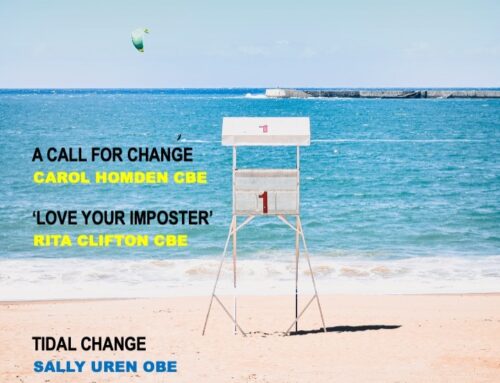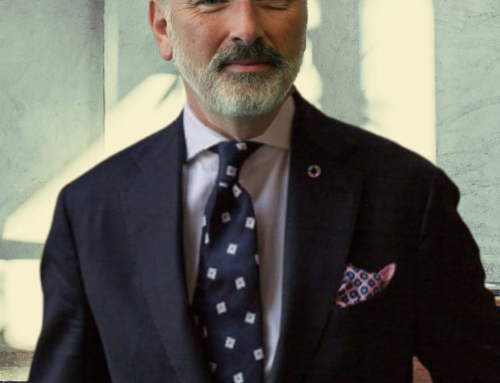We’re not all in this together

Are we all in this together? I sincerely hope so, but I’m not convinced. Because, if nothing else, we know that the ongoing pandemic — amid relentless political turbulence — will test hearts and minds in a manner that few of us can predict.
Let’s start with our marcomms industry first. There will be blood. Agencies have already laid off hundreds, if not thousands of staff. In the cold, hard language of business arithmetic, this is an understandable response to the economic havoc that Covid-19 has wrought. Few firms will be spared from the ravages of the Covid-19 lockdown.
Ours is often an effervescent industry, perhaps a little too susceptible to glad tidings and glad rags. And while some firms have no doubt benefited from increased demand in specific sectors and practice areas, the drumbeat of layoffs and restructuring stories is likely to disabuse anyone of any illusions they harbour regarding the impact of Covid-19 on the global PR industry.
The positives are worth bearing in mind. I cannot a recall a time when corporate communications (internal as much as external) has been more important, when staff and customers have needed more in the way of accurate information and empathetic reassurance. Our research bears this out. The value of credible media has become clearer.
We are more caring, more mindful. The boundaries between work and home have blurred in a manner that should remind corporate leaders we are not just digits on a spreadsheet. These things matter because of the first part of the equation I alluded to above. The financial calculations are well understood, but it is the human cost of this crisis that will test us most.
Even as we profess to come together, we run the risk of finding ourselves further apart, unmoored amid layoffs, furloughs and an existential level of dread. Thousands of your former colleagues will end up out of work. Thankfully, agencies are offering more than just words. Many are extending health insurance benefits and providing professional career assistance, while the response to various jobseeker support initiatives, including our own, has been gratifying.
Even so, there are valid questions that can be raised about business models that prioritise profit over people. That insist on maintaining their vaunted margins, whatever the consequences. Those queries are likely to become more acute as economies reopen.
Companies have been remarkably quick to focus their efforts inward, on making their employees feel safe and valued as they grapple with the challenges of grieving families, social distancing and economic disruption. But some are beginning to change the tone of their communications, making decisions that clearly indicate their employees are no longer a priority.
Disney, for example, said it was furloughing 100,000 workers—but that it would maintain its generous executive compensation program (executive chairman Bob Iger stands to make $40 million this year) in place. Asked about the decision, a Disney spokesperson told the FT: “I suggest you look up the definitions of ‘publicly traded company’ and ‘fiduciary duty.’”
It should go without saying that there is nothing in the definition of fiduciary responsibility that required companies to demand sacrifices from its workforce while continuing to pay exorbitant bonuses to wealthy executives. Indeed, last year America’s leading CEOs appeared to be in broad agreement that it was important to balance the needs of shareholders with those of other key stakeholder groups.
That consensus should be more important now than ever, with ordinary workers facing an unprecedented threat to their lives and their livelihoods and with public scrutiny intensified by the crisis. Instead, many companies are demonstrating that their commitment to a more equitable approach was mere lip service—that the sacrifices required during this pandemic will not be shared by those at the top.
Supermarket chain Kroger suspended the “hero” pay with which it had been supplementing employees’ salaries during the first weeks of the lockdown, although CEO Rodney McMullen and other top executives will still receive their own bonuses, believed to be worth north of $20 million.
And the Washington Post spotlighted a handful of companies—Caterpillar, Stanley Black & Decker, Steelcase, World Wrestling Entertainment, and one-time CSR leader Levi Strauss—that had laid off or furloughed staff while paying massive dividends to shareholder. “As thousands of their workers were filing for unemployment benefits, these companies rewarded their shareholders with more than $700 million in cash dividends,” the paper reported.
Meanwhile, as Black Lives Matter protests finally force a moment of reckoning for institutional racism, the pandemic also reminds us that people of colour are again suffering more than their white counterparts. Deaths from Covid-19 are disproportionately high among communities of color — Black and Latino patients in particular, calling to mind an old aphorism: “When white America catches a cold, black America gets pneumonia.”
All of which makes me question whether we really are all in this together. Some of us — those without money, means and representation — appear more exposed than others. And all of this takes place against an ominous backdrop of political turmoil and violence from Hong Kong to New York, much of it state-sponsored.
We have examined, in detail, the ramifications of the ‘age of rage’ for corporates; perhaps we should be more worried about its impact on people, and on human bonds that are visibly fraying. For an industry that is purportedly built on its understanding of ‘the public’, these are critical challenges. But understanding alone will not be enough, not least because corporates and agencies can drive more change than they probably care to admit.
At a time of systemic angst, furthermore, it has never been more clear that people are weary of empty platitudes when real action is required. Businesses love to talk about purpose and social good. No one said that delivering on those promises would be easy. But we need companies to help us get through this — all of this — because the economic and emotional toll calls for all of the support and resources we can muster.
Arun Sudhaman
CEO & Editor
https://www.provokemedia.com/
Twitter: @ArunSudhaman


We’re not all in this together

Are we all in this together? I sincerely hope so, but I’m not convinced. Because, if nothing else, we know that the ongoing pandemic — amid relentless political turbulence — will test hearts and minds in a manner that few of us can predict.
Let’s start with our marcomms industry first. There will be blood. Agencies have already laid off hundreds, if not thousands of staff. In the cold, hard language of business arithmetic, this is an understandable response to the economic havoc that Covid-19 has wrought. Few firms will be spared from the ravages of the Covid-19 lockdown.
Ours is often an effervescent industry, perhaps a little too susceptible to glad tidings and glad rags. And while some firms have no doubt benefited from increased demand in specific sectors and practice areas, the drumbeat of layoffs and restructuring stories is likely to disabuse anyone of any illusions they harbour regarding the impact of Covid-19 on the global PR industry.
The positives are worth bearing in mind. I cannot a recall a time when corporate communications (internal as much as external) has been more important, when staff and customers have needed more in the way of accurate information and empathetic reassurance. Our research bears this out. The value of credible media has become clearer.
We are more caring, more mindful. The boundaries between work and home have blurred in a manner that should remind corporate leaders we are not just digits on a spreadsheet. These things matter because of the first part of the equation I alluded to above. The financial calculations are well understood, but it is the human cost of this crisis that will test us most.
Even as we profess to come together, we run the risk of finding ourselves further apart, unmoored amid layoffs, furloughs and an existential level of dread. Thousands of your former colleagues will end up out of work. Thankfully, agencies are offering more than just words. Many are extending health insurance benefits and providing professional career assistance, while the response to various jobseeker support initiatives, including our own, has been gratifying.
Even so, there are valid questions that can be raised about business models that prioritise profit over people. That insist on maintaining their vaunted margins, whatever the consequences. Those queries are likely to become more acute as economies reopen.
Companies have been remarkably quick to focus their efforts inward, on making their employees feel safe and valued as they grapple with the challenges of grieving families, social distancing and economic disruption. But some are beginning to change the tone of their communications, making decisions that clearly indicate their employees are no longer a priority.
Disney, for example, said it was furloughing 100,000 workers—but that it would maintain its generous executive compensation program (executive chairman Bob Iger stands to make $40 million this year) in place. Asked about the decision, a Disney spokesperson told the FT: “I suggest you look up the definitions of ‘publicly traded company’ and ‘fiduciary duty.’”
It should go without saying that there is nothing in the definition of fiduciary responsibility that required companies to demand sacrifices from its workforce while continuing to pay exorbitant bonuses to wealthy executives. Indeed, last year America’s leading CEOs appeared to be in broad agreement that it was important to balance the needs of shareholders with those of other key stakeholder groups.
That consensus should be more important now than ever, with ordinary workers facing an unprecedented threat to their lives and their livelihoods and with public scrutiny intensified by the crisis. Instead, many companies are demonstrating that their commitment to a more equitable approach was mere lip service—that the sacrifices required during this pandemic will not be shared by those at the top.
Supermarket chain Kroger suspended the “hero” pay with which it had been supplementing employees’ salaries during the first weeks of the lockdown, although CEO Rodney McMullen and other top executives will still receive their own bonuses, believed to be worth north of $20 million.
And the Washington Post spotlighted a handful of companies—Caterpillar, Stanley Black & Decker, Steelcase, World Wrestling Entertainment, and one-time CSR leader Levi Strauss—that had laid off or furloughed staff while paying massive dividends to shareholder. “As thousands of their workers were filing for unemployment benefits, these companies rewarded their shareholders with more than $700 million in cash dividends,” the paper reported.
Meanwhile, as Black Lives Matter protests finally force a moment of reckoning for institutional racism, the pandemic also reminds us that people of colour are again suffering more than their white counterparts. Deaths from Covid-19 are disproportionately high among communities of color — Black and Latino patients in particular, calling to mind an old aphorism: “When white America catches a cold, black America gets pneumonia.”
All of which makes me question whether we really are all in this together. Some of us — those without money, means and representation — appear more exposed than others. And all of this takes place against an ominous backdrop of political turmoil and violence from Hong Kong to New York, much of it state-sponsored.
We have examined, in detail, the ramifications of the ‘age of rage’ for corporates; perhaps we should be more worried about its impact on people, and on human bonds that are visibly fraying. For an industry that is purportedly built on its understanding of ‘the public’, these are critical challenges. But understanding alone will not be enough, not least because corporates and agencies can drive more change than they probably care to admit.
At a time of systemic angst, furthermore, it has never been more clear that people are weary of empty platitudes when real action is required. Businesses love to talk about purpose and social good. No one said that delivering on those promises would be easy. But we need companies to help us get through this — all of this — because the economic and emotional toll calls for all of the support and resources we can muster.
Arun Sudhaman
CEO & Editor
https://www.provokemedia.com/
Twitter: @ArunSudhaman





